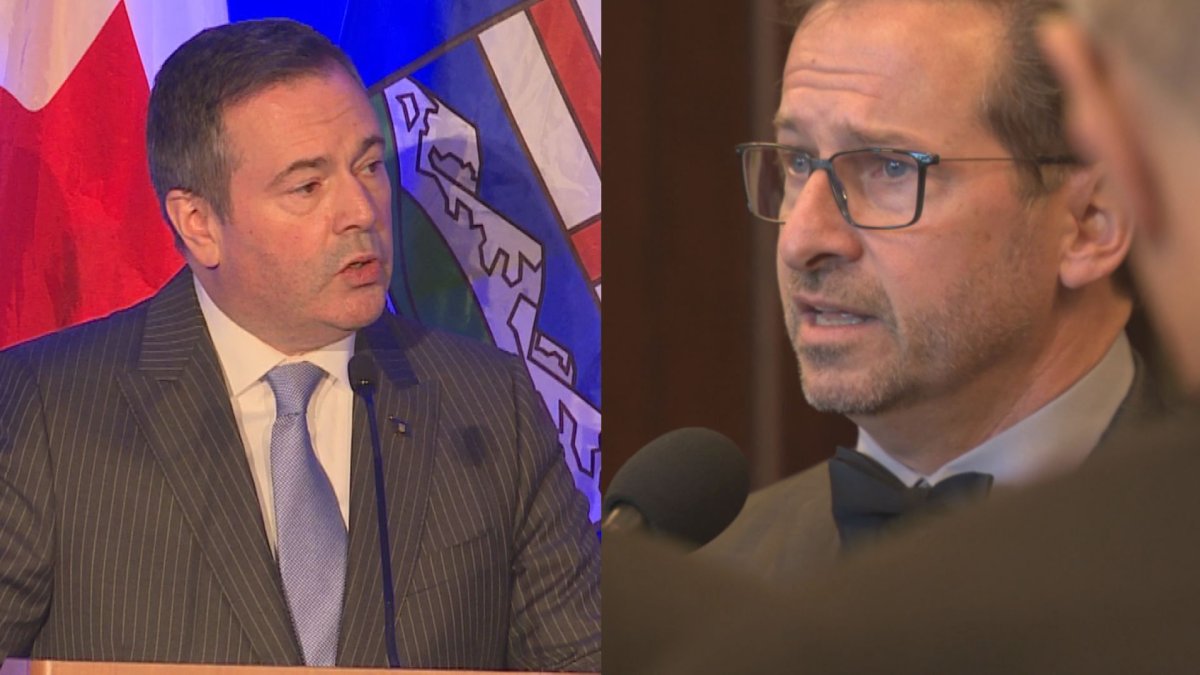Albertans are in a rather ornery mood these days, so it should come as no surprise that Alberta’s premier might be up for a fight.

In fact, Jason Kenney’s willingness to fight was a big reason he was elected premier this past spring.
Of course, there’s a big difference between fighting to achieve something and fighting for the sake of fighting, and Kenney is walking a fine line between the two in his spat with the leader of the Bloc Quebecois. Ultimately, though, it’s unlikely that anything productive is going to emerge from this spat and hopefully we won’t waste too much energy on this.
It is, however, a useful reminder of the tensions that currently exist in this country and that the newly re-elected prime minister is going to have to address. Even once the dust settles on this spat, it’s unlikely to be long before the next one flares up.
It was following his meeting with the prime minister this past week that Yves-François Blanchet sparked this feud with Kenney (so technically Blanchet started it). The Bloc leader expressed his intent to oppose any government initiative that would lead to more oil and gas being extracted.
In a subsequent interview, when he was asked about the fact that Quebec receives a significant portion of its oil from Alberta, he declared simply that “Quebec’s needs are fulfilled,” and that’s as far as things need to go.
Of course, any premier is going to want to stand up for his or her province and so it’s more than fair that Kenney would do so. Given that Albertans are already feeling disrespected and unappreciated — especially when it comes to Quebec — it was obvious that Kenney wouldn’t hold back.
To Blanchet directly, Kenney said: “You cannot have your cake and eat it too. Pick a lane.”
The comments certainly played well here in Alberta, but it’s probably also true that there was a receptive audience for Blanchet’s comments. There’s certainly some political theatre going on here as both politicians are performing for their respective bases.
Clearly, neither has any expectation of convincing the other of anything.
And even if Kenney could argue so forcefully that it actually did convince Blanchet to back down or change his mind, what would that actually accomplish? For what, specifically, is Blanchet an obstacle?
As Kenney himself pointed out this week, the province of Quebec is actually an ally when it comes to raising concerns about Ottawa’s Bill C-69 — the legislation to overhaul the review process for major projects.
Furthermore, the most immediate and critical concerns when it comes to pipeline infrastructure are Trans Mountain (TMX), Keystone XL and the Line 3 replacement — none of which have anything to do with Quebec.
Further still, all three projects have government approval, so there’s nothing the Bloc can do to cause trouble for them.
Albertans might bristle at the fact that Quebec politicians are largely opposed to the concept of a future export pipeline to the east coast, but that’s a moot point at the moment.
Ironically, Quebec may end up getting more Alberta oil across its territory, anyway. It was reported this week that Repsol SA — a Spanish oil company — is considering a plan to use rail transport to get more Alberta oil to the east coast so it can be shipped to Europe. Apparently, the company sees Western Canadian oil as a potential replacement for dwindling supplies of Mexican and Venezuelan oil.
Of course, a pipeline would be a much safer and more efficient way of transporting that product, but pipeline opponents tend to be somewhat oblivious to such details.
Regardless, though, it only further underscores the disconnect that exists between the Kenney-Blanchet feud and the issues that actually matter right now. Hopefully this doesn’t prove to be a significant distraction moving forward.
Rob Breakenridge is host of “Afternoons with Rob Breakenridge” on Global News Radio 770 Calgary and a commentator for Global News.











Comments